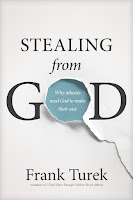What Is Scientism?
Scientism is an epistemic philosophy that values science as the exclusive source of knowledge and truth about the whole of reality. Scientism is usually presented in two forms: strong and weak (though not always associated with those terms). The concept of strong scientism holds that knowledge cannot be obtained outside the sciences, so it holds all other disciplines as irrelevant to the pursuit of truth. Such disregarded disciplines are (but not limited to) history and philosophy (ironically). The main idea behind strong scientism is that if a claim cannot be tested by some form of the five senses, then it cannot yield truth. Strong scientism lends its adherent to an attitude of disdain and disregard for those in non-scientific fields who attempt to speak about reality based on their discoveries.
The concept of weak scientism holds that non-scientific disciplines are merely inferior to the sciences. If discoveries of reality from the other disciplines come into conflict with current thinking in the sciences, those discoveries are not allowed to judge or influence the interpretations of reality that come from the sciences. The other disciplines are always placed under the judgement of the sciences but never the other way around. The interpretations of reality that come from the sciences are valued over the other disciplines' discoveries and either denial of the data or reinterpretation of the other disciplines' discoveries is required. Discoveries from other disciplines are thus limited to what ever is implied by the interpretations already held in the sciences or what ever necessarily grounds those ideas. Everything else is judged false.
While weak scientism articulates tolerance of other knowledge disciplines as opposed to the intolerance of other knowledge disciplines of strong scientism, the two versions ultimately result in the same thing. Weak scientism is just a detour to the same destination of strong scientism.
Maintaining Scientism
I do not know anyone who actually defends strong scientism. Very few people who articulate a philosophy of strong scientism will maintain it after a few pointed questions are asked or observations are made. When the realization of the failure of strong scientism comes (whenever that is or was), the pivot is usually towards weak scientism. The person's goal in holding strong scientism was to place the sciences as the arbiter of truth, and weak scientism allows them to maintain that without the ludicrous claim that science is the only source of truth.
Philosopher J.P. Moreland addresses this subject in his book "Scientism and Secularism." I reviewed it earlier this year and have seen many atheists and science-minded folks (on social media) toss it aside as simply rejecting a strawman of scientism. They limit Moreland's concept of scientism to the strong version and do not consider his focus on the weak version. The value of Moreland's work is not in its defeat of strong scientism (what no atheist or scientist defends- the strawman) but in its demonstration that weak scientism is a clever detour to the same destination as strong scientism. Moreland demonstrates that if those who claim to reject strong scientism reject it because of the epistemic limits it has to investigate large portions of reality, they are logically obligated to reject weak scientism as well.

Moreland's point is that the obvious failure of strong scientism comes in its insistence that the whole of reality is testable via the five senses. What is not so obvious is that forcing discoveries made without the five senses to be judged by disciplines that are limited by the five senses results in the same thing- insisting that the whole of reality is testable via the five senses.
Ironically, those who have rejected Moreland's work on the subject are guilty of their own accusation: rejecting a strawman. That strawman comes by the atheist's or scientist's limiting of Moreland's point to the already agreed-upon failure of strong scientism. They do not accept that Moreland accepts that they accept the failure of strong scientism. But it is that agreement that serves as the foundation for Moreland's focus: the defeat of weak scientism as well.
Skip the Detour?
Once the atheist or scientist can get past their own strawman, they can find great value in Moreland's work. What is interesting is that for those who wish to maintain the sciences as the arbiters of truth, Moreland actually makes the case for the extreme inefficiency of weak scientism. If the goal and the results are the same, why waste the resources required by the detour when they could be spent on scientific discovery? Many atheists and scientists have already made it through this line of reasoning as well (another agreement they may discover with Moreland).
They recognize that the appearance of tolerance is inefficient and have doubled down on their strong scientism. But then they are jerked back to the reality of its failures. They are stuck between what they want reality to allow and what reality actually does allow or what they want people to believe that they believe and what they actually do believe.
Inefficiency Vs. Intolerance
As I said earlier, I do not know anyone who defends strong scientism (this includes atheists and scientists). However, I did not say that I do not know anyone who does not believe it. How is that combination possible? Because strong scientism cannot be defended. Those who believe it often change rhetoric from moment-to-moment, from tolerance (weak scientism) to ridicule (strong scientism). This lends proponents of strong scientism to accuse proponents of weak scientism of inefficiency, and it lends proponents of weak scientism to accuse proponents of strong scientism of intolerance. Some favor one or the other and spend more time in that rhetorical space, and you may hear them defend efficiency over tolerance or tolerance over efficiency, but you will never hear them include a solid defense of science as the sole arbiter of truth. Because of that, those who wish to maintain that science is the sole arbiter of truth are forced to pick their poison: inefficiency or intolerance.
Moreland Has A Better Idea
Instead of choosing between either intolerance or inefficiency, why not reject the essential premise of both weak and strong scientism? If the atheist or scientist truly rejects the idea that the sciences are the sole source of truth, they never need to maintain (much less defend) the idea. Further, any accusation of inefficiency or intolerance regarding discovery of reality or non-scientific disciplines, respectively, will be false and indefensible. Ultimately, if the atheist or scientist rejects scientism they are freed from the rhetorical distractions and investigative limits, but they are faced with more uncomfortable challenge: a Divine foot is now in the door. Are atheists and scientists who currently insist upon scientism willing to allow this, or will they continue on their indefensible rejection of other sources of truth?
To Investigate Further, I recommend these books:
Follow Faithful Thinkers On Social Media


























